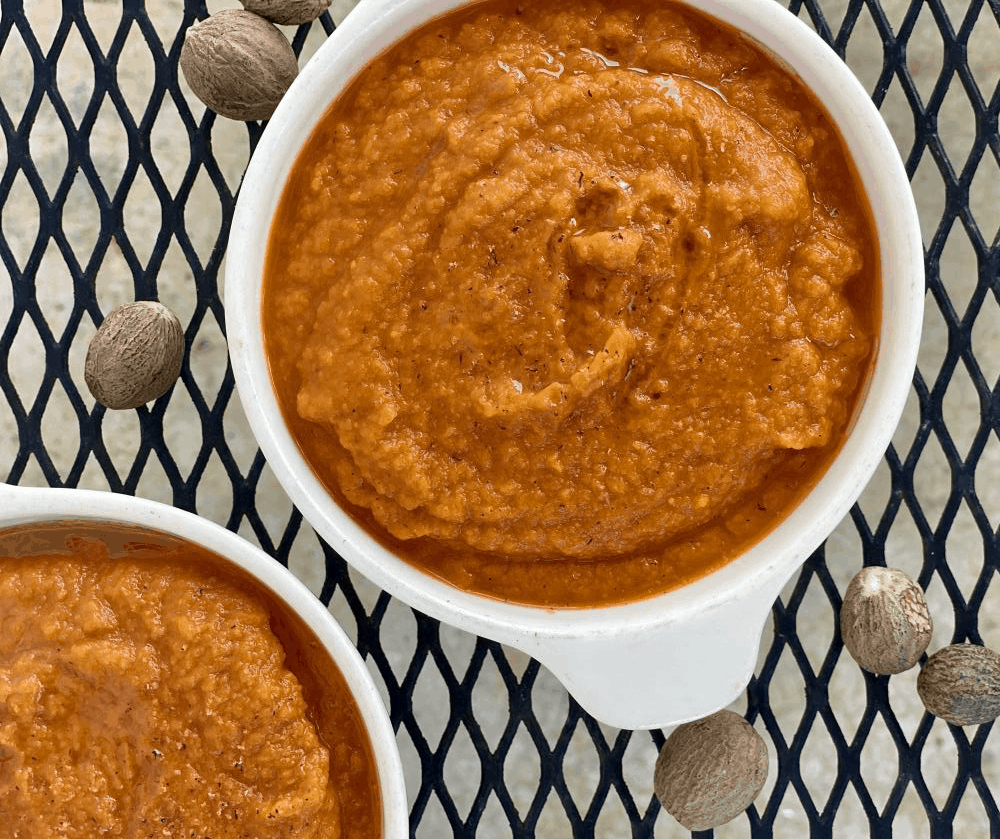
Eat for Longevity!
People are living longer today than ever before. Yet, the elderly may not be living as healthy a lifestyle as in previous generations. Proper nutrition can help protect cellular health, reduce inflammation and improve the immune system. Diet is a major player in determining how well you age.People are living longer today than ever before. Yet, the elderly may not be living as healthy a lifestyle as in previous generations. Proper nutrition can help protect cellular health, reduce inflammation and improve the immune system. Diet is a major player in determining how well you age.
Eat more phytonutrient-rich plants like sweet potatoes! Sweet potatoes are packed with the antioxidant betacarotene which can help support the immune system and may slow aging. Eating foods that contain carotenoids has been correlated to a reduced risk of cancer and cardiovascular disease. Additionally, sweet potatoes are loaded with fiber and are a good source of vitamin C and potassium. They are a nutrient dense low calorie food.
Creamy Sweet Potato Tomato Soup
Ingredients:
Olive oil for greasing
2 sweet potatoes, peeled and cut into 1-inch cubes
2 carrots, tops removed
2 yellow onions, peeled and quartered
2 garlic cloves, peeled
1/4 tsp nutmeg
25 oz jar of organic tomato pasta sauce
1 cup vegetable stock or any type of broth
Directions:
Preheat oven to 375 degrees. Line a large baking sheet with parchment paper. Grease with olive oil. Place sweet potatoes, carrots, onions, and garlic cloves on lined baking sheet. Sprinkle nutmeg over vegetables. Roast for 45 minutes or until vegetables are tender. Remove from oven and toss all ingredients into blender. Add tomato sauce, and broth and blend until smooth, adding additional vegetable stock if needed to thin. Pour soup into large pot and heat over medium high heat until just boiling. Reduce heat to simmer and cook for 20 minutes or longer for a richer flavor.
Sweet Potato Cranberry Crumb Bars
Ingredients:
Crust:
1 cup dried cranberries
2 Tbs water
1 1/2 cups pecans or walnuts
1/2 cup unsweetened shredded coconut
Pinch of sea salt
Filling:
2 cups pureed sweet potato
1/2 cup coconut milk
1/2 cup cashew butter
1 Tbs vanilla extract
1 tsp cinnamon
1/4 tsp nutmeg
Directions:
Line an 8×8 baking dish with parchment paper. Add cranberries and 2 Tbs water to food processor and process until fine about 1 minute, stopping to scrap down sides of bowl. Add pecans or walnuts, shredded coconut, and a pinch of salt. Process until combined and mixture will stick together when pinched with fingers. Scoop crust mixture into lined baking dish and press down with fingers to form an even crust in bottom of dish. Place crust in freezer to set while you prepare the filling.
Add sweet potato, coconut milk, cashew butter, vanilla, cinnamon and nutmeg to blender and blend until smooth and creamy. Remove the cranberry crumb crust from the freezer and pour the sweet potato mixture on top. Spread evenly with spatula. Place in refrigerator at least 5 hours or overnight.
NAD IV Therapy Available at MaxWell Clinic™
NAD IV Therapy (Mitochondrial Reboot Therapy) has been shown to help people with:
- Brain Fog
- Depression
- Anxiety
- PTSD
- TBI (Traumatic Brain Injury)
- Drug Addiction
- Alcohol and Smoking Addiction
- Neurological Diseases
As well as improve general executive functioning.
NAD is a molecule found in all living cells and plays a crucial role in the chemical process that generates energy. The brain only comprises 2.5% of our body weight but it consumes nearly 23% of our daily calories to function. It is a very energy hungry organ.
When the cells of the brain are unable to make sufficient energy, a whole host of symptoms can arise from the subtle diminishment of performance and lack of clarity that we attribute to aging to severe neurodegenerative conditions.
We use a specialized cell-signalling factor and targeted nutrient combination therapy that has been utilized to transform the health and performance of elite athletes, Navy Seals and people all over America.
To make an appointment for NAD IV Therapy, call the clinic and schedule an appointment TODAY.
(615) 370-0091
Changing your diet is one very effective way of reducing inflammation, but for additional effectiveness, get the help of ReSIRTen Plus for healthy aging. ReSIRTen Plus contains resveratrol (with some assisting compounds) which provides powerful antioxidant support and has been shown to produce changes associated with longer lifespan.
Let’s use September, Healthy Aging Month, to encourage healthy dietary practices at any age!
According to the World Health Organization (WHO), healthy aging is “the process of developing and maintaining the functional ability that enables wellbeing in older age.” To make all of our years as healthy as possible, there is a need for preventative and lifestyle medicine that improves nutrition and increases exercise.
Aging is not all about a number. Advanced years do not automatically mean poor health later in life. Chronic disease is often seen with aging, however research is showing that these medical conditions are often seen due to poor lifestyle choices, with a crummy diet as one of the major contributors to chronic diseases.
Better Diet Quality Means Better Quality of Life
Improved diet later in life is associated with better physical, emotional, and functional status. It is also associated with a better quality of life. Diet quality and habits are essential to healthy aging. However, a healthy diet throughout life is likely beneficial for healthy aging. Populations that consume mainly plant-based diets have been shown to thrive through old age. Some of the longest living people are known to consume nutritionally rich diets high in phytonutrients. Diets that include high anti-inflammatory vegetables and avoid excessive calories are thought to contribute to longevity.
Longevity has been observed from calorie restriction. Calorie restriction can reduce inflammation and improve the immune system, which are thought to positively influence aging. Animal studies have shown calorie restriction to reduce occurrence of age-related conditions and some have shown an increase of lifespan. A 12% calorie reduction, from a human study, showed a reduced risk of age-related diseases.
Clinical supervision is recommended when adjusting diet to include calorie restriction or intermittent fasting. Please discuss any dietary changes with your medical provider or dietitian.
Single foods and single phytonutrients alone are unlikely to improve aging. Dietary and lifestyle patterns that include anti-inflammatory foods, prevent excessive calories, and include physical activity are the best bet for healthy aging.
Anti-inflammatory & Phytonutrient Rich
Colorful plant foods provide a variety of phytonutrients. The following anti-inflammatory colorful foods have been observed in abundance from dietary patterns amongst populations with the longest longevity:
- Sweet potatoes
- Leafy greens
- Peppers
- Seaweeds
- Herbs & spices
The same dietary patterns also included high fiber, lower glycemic index, heavy intake of lower calorically dense vegetables and fruits, reduced meat intake, reduced intake of refined grains, and reduced sugar, salt, and saturated fat intake.
Calorie Restrictive
There are many ways to achieve calorie restriction and intermittent fasting (IF) is one of the easiest. IF can be achieved through different timing schedules. It is important to remember that intermittent fasting is not for everyone and healthy aging can be accomplished through means that do not include calorie restriction or intermittent fasting. However, if you are interested in intermittent fasting here are a few considerations:
- Begin with a 12 hour fast overnight. As this becomes comfortable, you can then stretch this period to longer fasting hours of 14 or 16. At 16 hours it is often easy to cut out one meal a day.
- Consume adequate fluid during fasting hours. You may have water, black coffee, and plain tea during fasting periods.
- During non-fasting periods, be sure you are eating well balanced meals of whole foods. It is important to eat a healthy diet when you do eat. Just adding periods of fasting to a poor diet is not healthy. Do not binge eat during non fasting hours. Eating fewer calories overall helps provide you with the health benefits of intermittent fasting.
Physical Activity
Physical activity is also important for healthy aging. Around the world, populations that produce healthy longevity partake in an active lifestyle while consuming diets rich in vegetables, fruits, whole grains, and legumes. Plus, adding physical activity to calorie restriction has been shown to help preserve muscle and bone mass.
This month, I invite you to a new nutrition challenge!
FEEDING MAXWELL CHALLENGE:
Vary color in your diet each week! Pick two foods from each color category every week to ensure you eat the rainbow in September.
Week 1, Red: radicchio, radishes, raspberries, beets, cherries, red onions
Week 2, Orange: pumpkin, sweet potatoes, persimmons, carrots, mango
Week 3, Yellow: banana peppers, pear, pineapple, summer squash, lemons
Week 4, Green: artichokes, cucumbers, zucchini, snow peas, lima beans
Week 5, Blue/Purple: purple carrots, blackberries, blueberries, figs, plums
Quick Tips to Increase Phytonutrients in your Diet
- Wash and prepare your fruit and vegetables after you purchase them so they will be easy to grab and eat.
- Sit your fruit and vegetables where they are visible so you will be likely to eat them more often.
- Add herbs to green salads, fruit salads, sauces, and dressings.
- Whole fruit is a natural on-the-go snack. Keep an apple, banana, or orange at your desk or in the car for when you need a quick snack.
Please speak with your doctor or medical provider before taking any supplement or making major dietary shifts such as calorie restriction or intermittent fasting.
References:
de Cabo, R., & Mattson, M. P. (2019). Effects of Intermittent Fasting on Health, Aging, and Disease. The New England journal of medicine, 381(26), 2541–2551. https://doi.org/10.1056/
Mayo Clinic. (2019, April 5). Health foods. https://www.mayoclinic.org/
Marsman, D., Belsky, D. W., Gregori, D., Johnson, M. A., Low Dog, T., Meydani, S., Pigat, S., Sadana, R., Shao, A., & Griffiths, J. C. (2018). Healthy ageing: the natural consequences of good nutrition-a conference report. European journal of nutrition, 57(Suppl 2), 15–34. https://doi.org/10.1007/
Milani, A., Basirnejad, M., Shahbazi, S., & Bolhassani, A. (2017). Carotenoids: biochemistry, pharmacology and treatment. British journal of pharmacology, 174(11), 1290–1324. https://doi.org/10.1111/bph.
National Institute on Aging. (2018, August, 14). Calorie restriction and fasting diets: What do we know? https://www.nia.nih.gov/
National Institute on Aging. (2020, February 27). Research on intermittent fasting shows health benefits. https://www.nia.nih.gov/news/
Ravussin, E., Redman, L. M., Rochon, J., Das, S. K., Fontana, L., Kraus, W. E., Romashkan, S., Williamson, D. A., Meydani, S. N., Villareal, D. T., Smith, S. R., Stein, R. I., Scott, T. M., Stewart, T. M., Saltzman, E., Klein, S., Bhapkar, M., Martin, C. K., Gilhooly, C. H., Holloszy, J. O., … CALERIE Study Group (2015). A 2-Year Randomized Controlled Trial of Human Caloric Restriction: Feasibility and Effects on Predictors of Health Span and Longevity. The journals of gerontology. Series A, Biological sciences and medical sciences, 70(9), 1097–1104. https://doi.org/10.1093/
Schagen, S. K., Zampeli, V. A., Makrantonaki, E., & Zouboulis, C. C. (2012). Discovering the link between nutrition and skin aging. Dermato-endocrinology, 4(3), 298–307. https://doi.org/10.4161/derm.
Shao, A., Drewnowski, A., Willcox, D. C., Krämer, L., Lausted, C., Eggersdorfer, M., Mathers, J., Bell, J. D., Randolph, R. K., Witkamp, R., & Griffiths, J. C. (2017). Optimal nutrition and the ever-changing dietary landscape: a conference report. European journal of nutrition, 56(Suppl 1), 1–21. https://doi.org/10.1007/
Shlisky, J., Bloom, D. E., Beaudreault, A. R., Tucker, K. L., Keller, H. H., Freund-Levi, Y., Fielding, R. A., Cheng, F. W., Jensen, G. L., Wu, D., & Meydani, S. N. (2017). Nutritional Considerations for Healthy Aging and Reduction in Age-Related Chronic Disease. Advances in nutrition (Bethesda, Md.), 8(1), 17–26. https://doi.org/10.3945/an.
World Health Organization. (2018, February 5). Aging and health. https://www.who.int/news-room/
World Health Organization. (n.d.). What is healthy ageing? https://www.who.int/ageing/
Feeding MaxWell nutrition emails are produced for informational purposes only and brought to you by MaxWell Clinic, LLC. The information is provided by a Registered Dietitian Nutritionist that has been trained in providing dietary advice backed by nutritional science and research. The nutrition information is not to be construed as medical advice or medical nutrition therapy. The information is not to be used as individualized nutrition counseling or used to diagnose, cure, treat, or prevent any medical problems. The content of these emails should not be used as a substitute for medical treatment from your medical provider. Any information, examples, recipes, foods, or stories presented do not constitute a warranty, guarantee, or prediction regarding the outcome of the individual using the material. The reader is responsible for working with a qualified professional before beginning any new dietary program or plan. The writers and publishers of this nutrition information are not responsible for any adverse reactions, effect, or consequences resulting from the use of provided information, recipes, foods, or suggestions.




